Summers call for air-conditioned rooms that provide comfort during the rising temperatures. While the luxury of an air conditioner cannot be overlooked, it is important to direct attention to an air filtration system as well. And you may wonder: does an air conditioner purify air?
The quality of the air we breathe is crucial. When we take care of the air surrounding our space, our average lifespan and quality of life can increase significantly. Nowadays the importance of clean air becomes even more paramount.
Indoor air can be more harmful than outdoor air (source), especially in the absence of proper air ventilation. Limited airflow in and around the room can give birth to airborne pollutants like dust, pollen, mold, or bacteria and viruses.
For this reason, many people are investing in high-quality air conditioners for their homes that also work as air purifiers. Major brands in air conditioners or HVAC systems are bringing innovation in technology and designing cooling systems that double up as air filters.
Let us understand how efficient these air conditioners are that work as air filtration systems. This article outlines how an air conditioner with an air purifier provides a 2-in-1 solution.
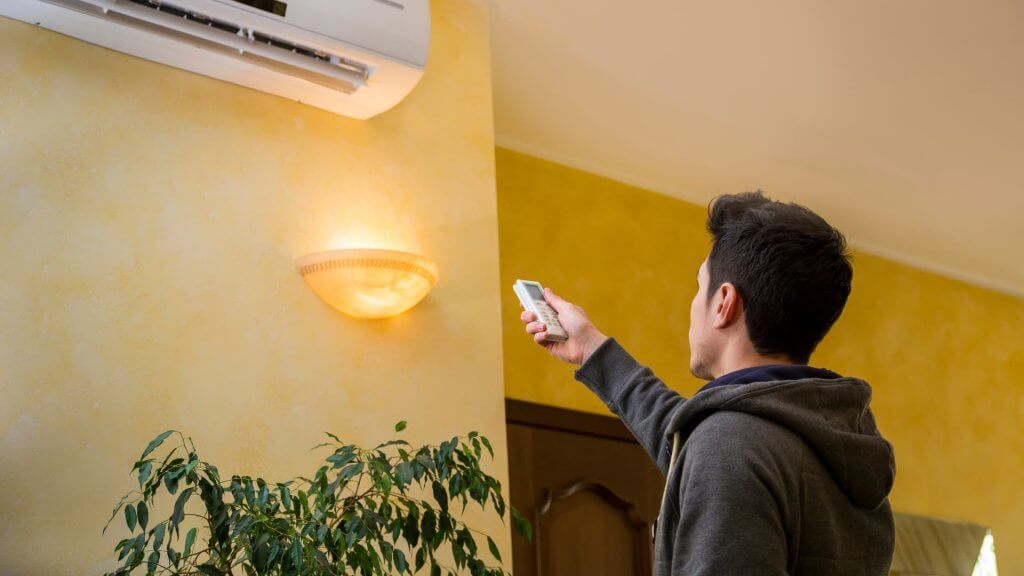
What Causes Indoor Air Pollution?
Airborne contaminants can arise in the form of dirt, dust, pollen, mold, animal fur, human hair, bacteria, and microorganisms.
The source of these airborne contaminants is usually not very specific. From dirt arising out of building materials to the release of gases from air fresheners, indoor air quality is largely influenced by fumes from wood burning to the use of humidifiers and shedding animal skin.
Poor ventilation and dirty filters also add to the cause of bad air quality. As a result, excess CO2 gets trapped indoors, failing to escape and dilute with fresh air. This is why using an air filter in air conditioners is important for us.
This is especially true for people dealing with asthma, bronchitis, severe allergic reactions, or breathing problems. As the cases of respiratory problems continue to rise, the use of an indoor air quality solution becomes important.
How Do Air Conditioners Function?
Air conditioners are known for indoor conditioning and cooling air. Air conditioner systems work by removing excess heat from the air inside the room.
This is done by an evaporator coil that pulls and absorbs the room’s heat. The refrigerant inside the evaporator (a cooling fluid in AC) absorbs the warm air and converts this heat into gas form.
The air is then taken to the outdoor unit “condenser” at a high compression rate, which cools down the warm air. The condensed air is then taken back inside the room through a hose to distribute even and cool air across the room.
As you can see, the AC in itself does not purify the air in any way. Additionally, it does not bring in fresh air from outside to dilute pollutants inside the room.
Related article: Does a Window AC Bring in Outside Air?
Do Air Conditioners Filter Air?
No, an AC does not necessarily filter the air in your home. But the HVAC system will. So it is important to note that it is the HVAC system, not the AC itself, which has these filters. That said, the filters do help to clean the air in your room.
These built-in air filters in new HVAC systems are located either in the return duct or the air filter slot, which filters out the harmful air pollutants.
Most of these air filters utilize certain technology that draws air through a mesh. After capturing all the harmful substances, the air inside the filter returns to the room.
Features of Air Filters
Choosing an air filter involves looking at four important factors: size, efficiency, type, and cost. With so many options available in the market, using a pre-designed filter inside the air conditioner saves money.
With a filter attached to an air conditioner, you will feel cool and clean air passing through the room. For this reason, understanding the different types of air filters available for HVAC units can help you choose a unit that is suitable for cleansing your air.
Use HEPA Filters For Best Efficiency
An acronym for High-Efficiency Particulate Air, HEPA filters are considered the best of all the filters suitable for HVAC systems. The filter consists of a fiber mat designed out of fiberglass to retain the smaller and larger particles.
With the efficiency to retain particles as small as 0.3 microns, the fibers in HEPA carry the ability to remove 99.97% of fine particles that fall below the diameter of 0.3 micrometers. HEPA filters are most useful for people with asthma as they can reduce very fine particles like tobacco and bacteria.
Related article: Can You Wash a HEPA Filter?
Electrostatic Filters for Screening Small Size Particles
Known for being cost-effective and environmentally friendly, these types of filters are effective in reducing fine dust particles. This is why major brands use these air filters to prevent the transmission of severe diseases, ensuring the best air quality.
Electrostatic filters use electrostatic magnets that pull toxic pollutants out of the room. These filters are available in the market and are sold with disposable and washable features.
Pleated Filters for Maximum Coverage
Pleated filters are designed with fabric and folded cotton that breaks the small and large air molecules on a wide filter surface.
The pleated surface grabs large amounts of dust, dirt, pollen, mold, or other microscopic particles. Additionally, the filter reduces the airflow passing through the HVAC unit, ensuring that it performs well in reducing debris from the air circulating inside the room.
Picking an Efficient Filter Is Key
Whether you choose to buy an independent air filter or trust the process of an in-built air purifier in an HVAC unit, it is important to be aware of the efficiency of each filter.
It is important to learn the difference between the MERV and MPR values to understand the performance parameters of an air purifier.
Maximum Efficiency Reporting Value (MERV), indicates the performance of a cleaner with respect to filtering different particle sizes. Generally, MERV ratings are indicated to be within the range of 2-16 rating, with a higher rating between 8 to 16 indicating the medium to best efficiency.
On the other hand, the Microparticle Performance Rating (MPR) is the filter’s capacity to remove microscopic particles with sizes of 0.3-1 microns. The standard MPR rating to gauge the filter’s capacity starts at 100, reaching 2.800 for long-lasting performance.
Related article: Air Conditioners Buyer’s Guide
Final Thoughts
Air filters require replacements every few weeks or a month to get the best results and optimal air filtration. Buying replacements is important as these air filters are exposed to every kind of harmful substance that can overwhelm the internal functioning of the HVAC unit.

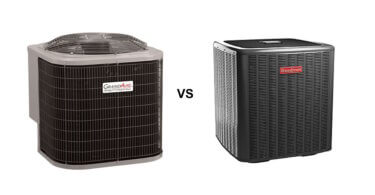
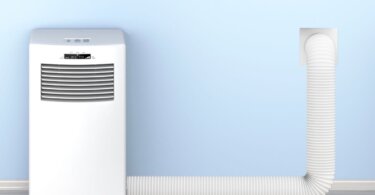
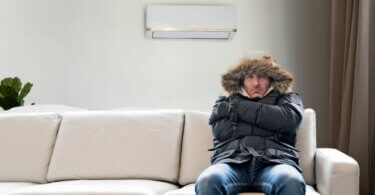
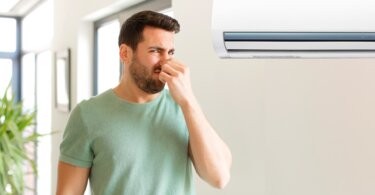
Leave a Comment